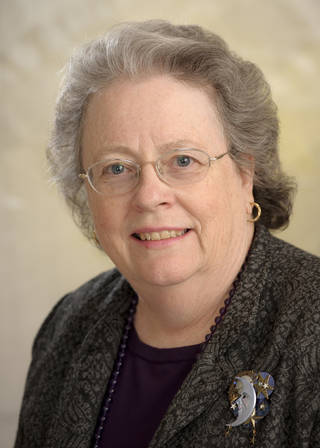Evolution: It's Only a Theory, But One Worth Teaching
Breaking space news, the latest updates on rocket launches, skywatching events and more!
You are now subscribed
Your newsletter sign-up was successful
Want to add more newsletters?

Delivered daily
Daily Newsletter
Breaking space news, the latest updates on rocket launches, skywatching events and more!

Once a month
Watch This Space
Sign up to our monthly entertainment newsletter to keep up with all our coverage of the latest sci-fi and space movies, tv shows, games and books.

Once a week
Night Sky This Week
Discover this week's must-see night sky events, moon phases, and stunning astrophotos. Sign up for our skywatching newsletter and explore the universe with us!

Twice a month
Strange New Words
Space.com's Sci-Fi Reader's Club. Read a sci-fi short story every month and join a virtual community of fellow science fiction fans!
My prior column was composed at 35,000 feet above North America as I surveyed the landscape from the air. The patterns etched by geological evolution are visible at altitude. Closer up, fossils tell the story of earlier life upon our continent. Gazing to the heavens, astronomers gather evidence of the evolution of planets, stars, galaxies--the whole universe evolves. Natural history museums host large collections of extant and extinct life that document biological evolution. Yet, as I noted, teaching evolution remains controversial in America.
A flood of email ensued. Many were supportive; some asked questions. Several negative and hostile emails were openly critical of my assertion that American schools should teach evolution in science classrooms to "leave no child behind". In addition to rejecting evolution for religious reasons, several people claimed that there was not sufficient evidence, that scientists could not all agree, or that evolution is "only a theory" which they equate with an unfounded idea.
Evolution is supported by evidence. There are several thousand peer-reviewed scientific journals where the evidence is presented in article after article. Natural history museums house large collections of fossils that document the history of life. Geologists and astronomers have a massive amount of observational evidence of the long-term change in physical systems: stars, galaxies, planets, interstellar dust, asteroids, etc. Biologists observe and document the patterns of the evolution of life: for example, the fossil record, DNA, and the observation of evolution in action such as the adaptive evolution of antibiotic-resistant strains of bacteria that now pose a serious threat to human health. Selective breeding in agriculture generated our crops and domestic animals over thousands of years; agriculture is evolution in action.
Certainly, there are continuing debates among scientists about the particulars of cosmic, planetary, and biological evolution. The nature of science requires continual questioning of ideas, evidence and theories. Theoretical scientists consider what we know, and pose new ideas and models to explain the natural world. New models and ideas generate new scientific tests of theory: observational experiments at Earth and space-based observatories, high-energy collisions of particle physics, deep-sea dives at the plate boundaries, and lab experiments in molecular biology to cite a few. Science is based upon observational and experimental evidence. Concepts that don't match observations are altered or tossed out. It's an iterative cycle. Likewise, if a scientist makes an observation or does an experiment that cannot be replicated, the results are suspect. Scientific explanations of the natural world are tested against nature, and discarded if they do not work. Consider cold fusion. Science is a self-correcting system that provides humans with powerful descriptions that allow us to understand and predict how the natural world works.
Consider Johannes Kepler, a mathematician who is often cited as one of the first modern astronomers. He took observational data collected by Tycho Brahe who was a terrific observer and had mounds of measurements for Mars. Brahe challenged Kepler to make sense of these Mars data. Tycho had his own ideas, but he didn't have Kepler's mathematical skills. Kepler spent months trying to fit the Mars data to the circular epicycles and deferents that explained planetary orbits in the astronomical tradition of his day. The data just didn't fit. Unlike his predecessors, Kepler took a leap toward modern science. He elected to trust the data, and abandoned the ancient model of circles upon circles for a new description of planetary motion. His ideas can be condensed into three statements which we call Kepler's laws. In their simplest form, they are: planets orbit on elliptical paths with the Sun at one focus; the period of a planet's orbit is proportional to it's distance from the Sun; and a planet's speed in orbit is proportional to its distance from the Sun (equal areas are swept out in equal time). Kepler didn't know why the planets orbited as they did, but he could describe their orbits and make accurate predictions about future positions. The next big step came with Isaac Newton who explained that why planets orbit the Sun: gravity. Only Mercury didn't behave as predicted by Newton's physics. Einstein remodeled physics once again with special and general relativity, and was able to explain Mercury's motion.
The theory of gravitation is a powerful explanation of how objects interact in space-time. Its heritage goes back to Kepler's description of planetary motion based upon Brahe's observational data. It's funny how no one argues that gravity is "only a theory," yet many dismiss evolution as "only a theory."
At a fundamental level, popular English and scientific usage are at odds here. In popular culture, a "theory" is understood to be a guess or speculation that may or may not be based upon evidence and analysis. In science, a theory is "a well-substantiated explanation of some aspect of the natural world that can incorporate facts, laws, inferences, and tested hypotheses." (Teaching About Evolution and the Nature of Science,National Academy of Sciences, 1998: 7). A scientific theory is the larger explanation of how the well-tested "laws" fit together to describe the natural world.
Breaking space news, the latest updates on rocket launches, skywatching events and more!
Dismissing evolution as "only a theory" is, at the simplest level, a misunderstanding of the meaning of "theory" in science. But, in the current controversy, discounting evolution as "only a theory" is more than a semantic debate. It's a political statement at the heart of the attack upon teaching evolution in science classrooms in America.
Science is a powerful tool for understanding the natural world, and has a dominant role in modern economics and culture. Scientific theories are at the heart of the enterprise. In the science classroom, children should learn about major scientific theories such as gravitation and evolution.
Science is a way of knowing, but not the only way of knowing. There are things that science does not address. For example, music, art, emotion, and religious beliefs are all outside the domain of what science can address. I find it unfortunate that the controversy over the theory of evolution continues as science offers all humans a way to know about the natural world and how it works.

Edna DeVore is a science and astronomy educator and the former Director of Education and Public Outreach for the SETI Institute. She earned an undergraduate degree from the University of Pacific followed by a master's degree in instructional technology from San Jose State and a master's in astronomy from the University of Arizona. In 1992, Edna joined the SETI Institute, where she wrote features on space exploration, astrobiology and more, some of which appeared on Space.com. She was among the first principal investigators to propose projects to NASA's Office of Space Science and receive funding for educational programs. Edna went on to work on education and public outreach for NASA's Kepler space telescope and SOFIA flying telescope missions. Edna received numerous awards during her tenure at SETI, including NASA Honor Awards for her work on Kepler and SOFIA, and Aerospace Awareness Award for Women in Aerospace in 2005. Edna retired in 2013.
